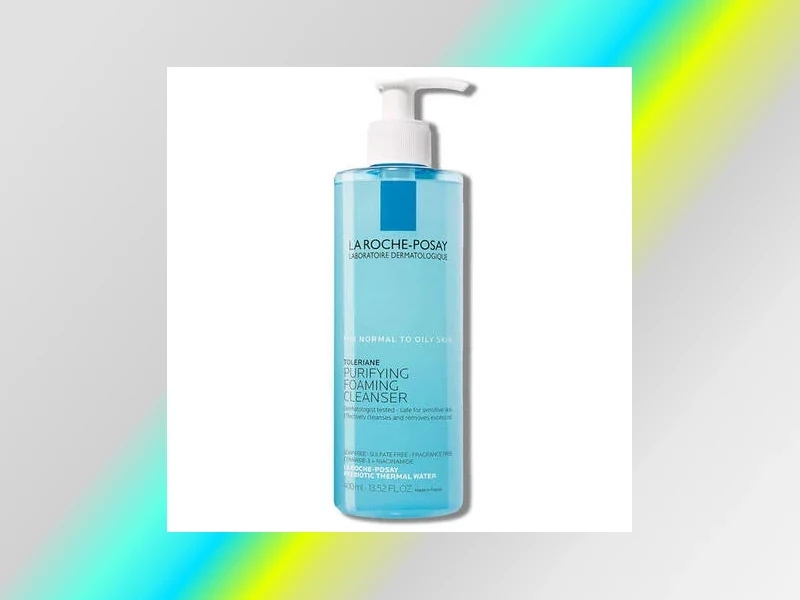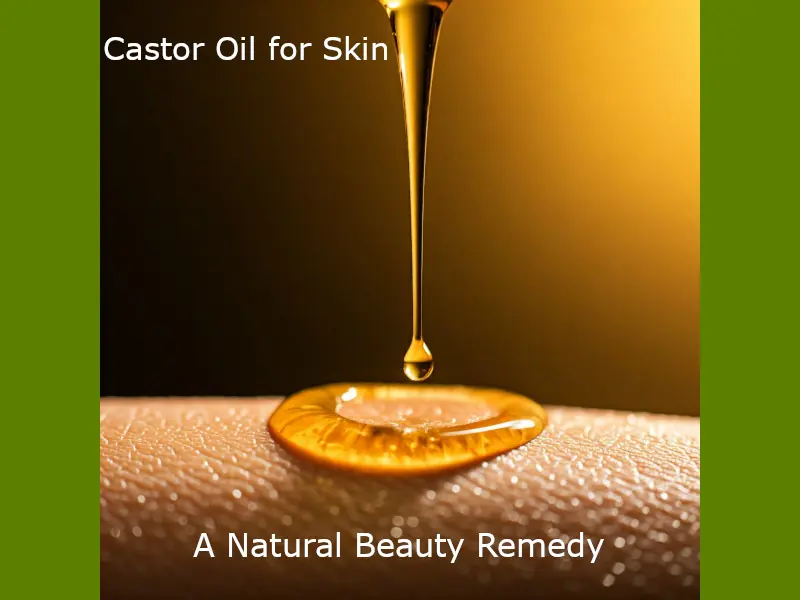Ultimate Guide to Night Skincare Routines for Youthful Skin
please validate the below, you are expected to highlight only the areas that are not correct and provide correct answers: In the hustle and bustle of daily life, your skin faces countless challenges, from pollution and UV rays to stress and aging. While daytime skincare focuses on protection, your nighttime routine is all about renewal and repair.

The right night skincare routine can be the key to waking up with radiant, youthful skin every morning. In this comprehensive guide, we’ll delve into the essential components of an effective night skincare routine, the science behind key ingredients, and how you can tailor your regimen to your unique skin type.
- Why Nighttime Skincare is Crucial
- 1. The Foundation of a Night Skincare Routine: Cleansing
- 2. The Role of Toners and Essences in Skin Preparation
- 3. The Power of Serums: Targeting Specific Skin Concerns
- 4. The Importance of Eye Cream in Night Skincare
- 5. Night Creams: The Cornerstone of Your Routine
- 6. The Role of Retinol in Nighttime Skincare
- 7. The Final Step: Locking in Moisture with an Overnight Mask
- 8. Additional Tips for an Effective Night Skincare Routine
- 9. Addressing Common Skin Concerns with Night Skincare
- 10. The Role of Antioxidants in Skin Health and Anti-Aging
- 11. How to Build a Customized Night Skincare Routine
- Conclusion
Why Nighttime Skincare is Crucial
Your skin’s natural repair processes are most active at night. As you sleep, your body goes into recovery mode, producing new cells and repairing damage. This is the perfect time to apply products that enhance these processes, providing your skin with the nourishment it needs to rejuvenate.
Unlike daytime skincare, which often focuses on protection (think sunscreen and antioxidants), nighttime skincare is all about giving your skin the tools it needs to repair itself. This includes addressing concerns like fine lines, wrinkles, dehydration, and dullness. A well-structured night skincare routine can be transformative, helping to reverse damage and slow down the signs of aging.
1. The Foundation of a Night Skincare Routine: Cleansing

The first and most critical step in any skincare routine is cleansing. Throughout the day, your skin accumulates dirt, oil, and makeup, which can clog pores and lead to breakouts. Proper cleansing ensures that your skin is free of impurities, allowing the subsequent products to penetrate more effectively.
- Choosing the Right Cleanser: Opt for a gentle, non-irritating cleanser that suits your skin type. For dry or sensitive skin, a hydrating cream or oil-based cleanser can help maintain moisture balance. Oily or acne-prone skin may benefit from a gel or foaming cleanser that removes excess oil without stripping the skin.
- Double Cleansing: Consider incorporating a double cleansing method if you wear heavy makeup or sunscreen during the day. Start with an oil-based cleanser to dissolve makeup and sunscreen, followed by a water-based cleanser to remove any remaining impurities.
2. The Role of Toners and Essences in Skin Preparation
After cleansing, toners and essences can play a vital role in prepping your skin for the next steps. These products help to balance the skin’s pH, remove any residual impurities, and hydrate the skin, making it more receptive to the active ingredients that follow.
- Toners: Choose an alcohol-free toner that hydrates and soothes the skin. Ingredients like hyaluronic acid, rose water, or witch hazel can help to refine pores and provide an extra layer of hydration.
- Essences: Essences are lightweight, hydrating liquids that contain high concentrations of active ingredients. They help to enhance skin cell renewal and improve the absorption of subsequent products. Look for essences that contain ingredients like hyaluronic acid, niacinamide, or fermented extracts.
3. The Power of Serums: Targeting Specific Skin Concerns

Serums are potent treatments designed to address specific skin concerns, such as fine lines, wrinkles, hyperpigmentation, or dehydration. Because they contain a high concentration of active ingredients, serums can deliver powerful results.
- Anti-Aging Serums: If fine lines and wrinkles are your primary concern, look for serums containing peptides that help anti aging skin. Peptides are short chains of amino acids that help to stimulate collagen production, improving skin elasticity and reducing the appearance of fine lines.
- Hydrating Serums: For those with dry or dehydrated skin, a serum containing hyaluronic acid is a must. Hyaluronic acid is a humectant, meaning it attracts moisture to the skin, helping to plump and hydrate the complexion.
- Brightening Serums: To combat dullness and uneven skin tone, consider a serum with vitamin C or niacinamide. These ingredients can help to brighten the skin, fade dark spots, and improve overall radiance.
4. The Importance of Eye Cream in Night Skincare
The skin around the eyes is delicate and often the first area to show signs of aging. Using an eye cream at night can help to hydrate, smooth, and protect this sensitive area.
- Choosing an Eye Cream: Look for an eye cream that addresses your specific concerns, whether it’s puffiness, dark circles, or fine lines. Ingredients like peptides, hyaluronic acid, and caffeine can help firm the skin, reduce puffiness, and brighten dark circles.
- Application Tips: Apply a small amount of eye cream using your ring finger (the weakest finger) to gently tap the product around the orbital bone. Avoid applying too close to the lash line to prevent irritation.
5. Night Creams: The Cornerstone of Your Routine
Night creams are the cornerstone of any night skincare routine. These rich, nourishing formulas work while you sleep to repair and rejuvenate the skin. Unlike daytime moisturizers, night creams are typically heavier and packed with ingredients that support skin renewal.
- Understanding the Role of Peptides in Anti-Aging: Peptides in night creams help to boost collagen production, which is essential for maintaining skin elasticity and reducing the appearance of fine lines and wrinkles. This makes peptide-rich night creams an excellent choice for those looking to combat signs of aging.
- Hydration with Hyaluronic Acid: A good night cream should also contain hydrating ingredients like hyaluronic acid. This powerful humectant helps to retain moisture in the skin, ensuring you wake up with a plump, hydrated complexion.
- The Importance of Ceramides: Ceramides are lipids that help to form the skin’s natural barrier, protecting it from environmental stressors and preventing moisture loss. Including a night cream with ceramides can help to restore and strengthen your skin’s barrier, making it more resilient and healthy.
- Choosing the Right Night Cream for Your Skin Type: Selecting the right night cream depends on your skin type. If you have dry skin, look for a rich, emollient formula with ingredients like shea butter and ceramides. For oily or acne-prone skin, opt for a non-comedogenic night cream that hydrates without clogging pores.
6. The Role of Retinol in Nighttime Skincare

Retinol, a derivative of vitamin A, is a powerhouse ingredient known for its ability to accelerate cell turnover, stimulate collagen production, and reduce the appearance of fine lines, wrinkles, and hyperpigmentation. While it’s a potent ingredient, it’s best used at night, as retinol can make your skin more sensitive to sunlight.
- Introducing Retinol into Your Routine: If you’re new to Retinol, start by using it once or twice a week to allow your skin to acclimate. Gradually increase the frequency as your skin builds tolerance. Be sure to follow up with a hydrating night cream to counteract any dryness or irritation.
- The Benefits of Retinol: Regular use of retinol can lead to smoother, firmer skin with fewer wrinkles and a more even tone. It’s also effective in treating acne and reducing the appearance of large pores.
- Precautions: Retinol can cause dryness and irritation, especially in those with sensitive skin. Always patch-test before full application and use a broad-spectrum sunscreen during the day to protect your skin.
7. The Final Step: Locking in Moisture with an Overnight Mask
An overnight mask is the final step in a night skincare routine, providing an extra boost of hydration and nutrients. These masks create a protective barrier on the skin, sealing in all the previous layers and allowing your skin to absorb the benefits throughout the night.
- Benefits of Overnight Masks: Overnight masks are designed to be the last step in your routine, offering intensive hydration and nourishment. They are particularly beneficial for those with dry or dehydrated skin, as they help to lock in moisture and prevent water loss.
- Choosing an Overnight Mask: Look for masks that contain hydrating ingredients like hyaluronic acid, glycerin, and ceramides. Some overnight masks also contain exfoliating ingredients like AHAs or BHAs, which can help to refine the skin’s texture and promote a brighter complexion.
8. Additional Tips for an Effective Night Skincare Routine
Consistency is Key: Skincare is a long-term commitment. Consistent use of your night skincare products is essential for seeing results. It may take several weeks or even months to notice significant improvements, so patience is crucial.
- Don’t Forget Your Neck and Décolletage: The skin on your neck and décolletage is just as delicate as the skin on your face and is prone to showing signs of aging. Extend your night skincare routine to these areas to keep them looking youthful.
- Patch Test New Products: Before introducing a new product into your routine, it’s always a good idea to perform a patch test. Apply a small amount of the product to a discreet area and wait 24-48 hours to see if any irritation occurs.
- Invest in Quality Products: While it’s possible to find effective skincare products at various price points, investing in high-quality, dermatologist-recommended products can make a significant difference in your skin’s health.
9. Addressing Common Skin Concerns with Night Skincare
- Fine Lines and Wrinkles: To target fine lines and wrinkles, focus on products that contain peptides, retinol, and antioxidants. These ingredients help to boost collagen production, protect against free radical damage, and smooth out the skin’s texture.
- Dry or Dehydrated Skin: If your skin is prone to dryness, prioritize hydrating ingredients like hyaluronic acid, glycerin, and ceramides. Layering these ingredients in your night routine can help to restore moisture and prevent water loss.
- Acne and Blemishes: For those dealing with acne, consider incorporating salicylic acid or benzoyl peroxide into your night routine. These ingredients help to unclog pores, reduce inflammation, and prevent breakouts. Be sure to follow up with a non-comedogenic moisturizer to avoid over-drying your skin.
- Hyperpigmentation: To address hyperpigmentation, look for products containing vitamin C, niacinamide, or alpha arbutin. These ingredients help to brighten the skin, fade dark spots, and even out your complexion over time.
10. The Role of Antioxidants in Skin Health and Anti-Aging

Antioxidants play a crucial role in anti-aging, protecting your skin from environmental damage and slowing down the aging process. They neutralize free radicals, which are unstable molecules that can damage skin cells and accelerate aging.
- Vitamin C: Vitamin C is a powerful antioxidant that brightens the skin, reduces the appearance of dark spots, and boosts collagen production. Incorporating a vitamin C serum into your night routine can help protect your skin from damage and promote a more youthful appearance.
- Vitamin E: Vitamin E is another potent antioxidant that helps to protect the skin from oxidative stress. It also has moisturizing properties, making it an excellent addition to your night cream.
- Coenzyme Q10: Coenzyme Q10 is a naturally occurring antioxidant in the body that helps to produce energy in skin cells. As we age, the levels of CoQ10 decrease, leading to wrinkles and loss of elasticity. Using skincare products with CoQ10 can help to replenish these levels and improve skin firmness.
11. How to Build a Customized Night Skincare Routine
Building a night skincare routine that works for you involves understanding your skin type, concerns, and goals. Here’s how to create a routine tailored to your needs:
- Identify Your Skin Type: Determine whether your skin is oily, dry, combination, sensitive, or normal. This will guide your product choices and help you avoid ingredients that may exacerbate any issues.
- Start with the Basics: Begin with a simple routine that includes cleansing, moisturizing, and treating specific concerns. As you become more comfortable, you can gradually introduce additional steps like serums, eye creams, and overnight masks.
- Listen to Your Skin: Pay attention to how your skin responds to different products. If you notice irritation or breakouts, consider simplifying your routine or switching to gentler products.
- Adjust with the Seasons: Your skin’s needs may change with the seasons. In the winter, you may require more hydration, while in the summer, you may need lighter, oil-free products.
Conclusion
A well-crafted night skincare routine is the foundation for healthy, radiant skin. By understanding the unique needs of your skin and selecting products that support its natural repair processes, you can achieve a complexion that looks and feels youthful, hydrated, and vibrant. Remember, consistency and patience are key. Stick with your routine, and over time, you’ll see the incredible benefits of your efforts.
Invest in your nighttime skincare routine today, and enjoy the lasting glow of beautiful, healthy skin for years to come.
Trust in your purchase:
Every product featured on our site has been carefully researched and selected based on quality, customer ratings, and positive reviews to ensure you receive excellent value for your money.
Please note:
This post contains affiliate links. If you make a purchase through these links, we may earn a small commission at no additional cost to you. This helps support our site and allows us to continue bringing you valuable content. Thank you!
Thank you for your precious time spent with AestheticThrive.
Sources:
- The Correct Skincare Routine Order, According to a Dermatologist
https://www.byrdie.com/skincare-routine-order - How to Build a Skin Care Routine: The Perfect 9-Step Skincare Regimen
How to Build a Skin Care Routine: The Perfect 9-Step Skincare Regimen – 2024 – MasterClass - SkincareRoutine Creator
Skincare Routine Creator | SkinSort - The Perfect Nighttime Skincare Routine, According to Dermatologists
The Perfect Nighttime Skincare Routine, According to Dermatologists (byrdie.com)






